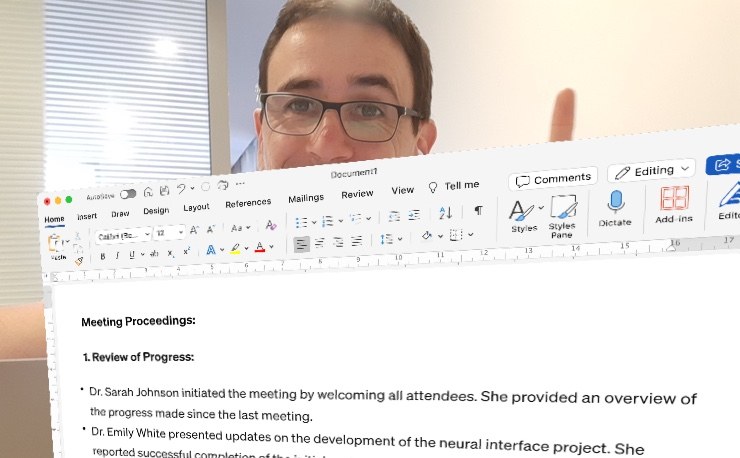Welcome to the club!
You are in good company! 99% of project managers struggle with this.
I could create a self-help group and PMs would join in droves.
Just kidding.
Let’s focus on solutions instead of self pity. In this article I’m going to share my advice from 10 years of project management to help you deal with unreliable employees without letting your emotions ruin the relationship.
“Sorry, but I’m late with this”
Here’s is the typical situation ― does it look familiar to you?
- You meet with the project team to discuss the status and next steps.
- You assign a task to a project team member. You let him indicate a due date, refine it together if there is a dependency, and together you agree on a delivery date.
- When that team member needs to deliver ― BOOM ― he tells you he’s late (meaning: he hasn’t even started yet). This feels like a punch in the gut because in previous status meetings it was all green according to him. No warning signs. All was work in progress.
Damn, what can you do to break out of this bad cycle of waiting for work and then having nothing in your hands when the time has come?
Understand the problem before judging people
We often respond by getting worked up and assuming all sorts of bad intentions people might have (I know I’m guilty of this):
“He probably has an issue with me”
“He doesn’t respect me enough”
“He’s a lazy $4(§$/*”
“He wants to sabotage my project”
How does this help?
Not in any way.
First, try to understand why your team member is always falling behind.
Procrastination may not be the issue.
In fact, there are many reasons why people fall behind on schedule with project tasks:
- They got too much work on their plate
- They struggle with self-organization
- They lack focus and easily get distracted
- They lack experience
Let’s go a little deeper into each of the reasons and see what you can do about it.
Is your team member drowning in work?
Having too many other things to do is probably the #1 reason why people become unreliable. They are not just working for your project but their team lead has assigned them to 24 other projects and now they are drowning in work.
When people are overloaded, they prioritize their work differently. They become reactive and only get going when people shout at them for a response (“I NEED IT NOW!!!!”).
What you can do with overloaded team members?
- Talk to the functional leader of the team member. See if other tasks can be taken off your team member’s shoulders.
- See if you can reschedule some of the person’s work to times where it doesn’t collide with their other work.
Is the team member struggling with self organization?
Many people lack basic organizational skills.
For example, they have no good system for filing emails. Every mail lands in the huge pile called inbox. No wonder that people forget what tasks they’ve committed to!
Their desk looks messy and there is crumbled paper all over the place.
The other issue is time management. Few people have a good system for planning their work. In the high-paced project environment, these issues become apparent and the project gets into trouble.
What can you do in such situations? Not much to be honest and it’s not your responsibility to teach people how to work effectively. But I don’t want to leave you without any tips though:
Here’s what you can do:
- Talk to the line manager and suggest the person gets some coaching on self organization and time management. There are good courses on LinkedIn which teach these subjects.
- Pair the disorganized person with another team member who shows a high level of self organization. This doesn’t work for all areas, but it works when the two people have some common work packages. I’ve explained this strategy which I call the “Sandwich Strategy” in more detail here.
By the way, I’m not telling you all this just to give an account of human incompetence. I’m telling you this to sharpen your understanding of why people miss commitments, which is the basis for finding a ‘fix’.
Is your team member unfocused?
I had a colleague who frequently worked til 11 at night on most working days. I thought: What a poor guy, he just got too much work. On one occasion I was sitting next to him and got to observe his working style. That’s when I realized HE was the problem and it wasn’t just too much work: he had 20 browser tabs open, 10 Excel sheets, 12 Outlook messages, and he switched between one after the other within seconds. He couldn’t focus on one task before jumping to the next. A clear sign of a lack of focus.
Distractions may not be their own but also can come from external sources.
What can you do with unfocused employees?
- Definitely check in more frequently. Once a week may not be not enough. Pass by their desk every other day.
- As in the case for team members lacking self organization, you can pair employees easily getting distracted with other, more reliable colleagues who can take the lead on a common work package.
- If you have a good relationship with the supervisor and the team member, you can offer an office spot which has less distractions. A quiet meeting room, the office from a manager currently on vacation ― whatever possibilities exist. Be creative.
Does your team member lack experience?
Team members may be procrastinating if they are fairly inexperienced in the field of work. They may be motivated and have the time, but the assigned task may be overwhelming and they don’t know how to get started.
This may be a problem when you are working with new technology or when the person is new in the organization and doesn’t have the network and doesn’t know whom to ask for help. We all can relate to that.
How can you help inexperienced team members?
- Check in frequently to see if they are stuck with a task
- Put them together with a more experienced team member
- Organize training sessions for your team before starting the project
Whenever I get a new project, I check if my team members have the necessary knowledge to carry out their work. In fact, this is such an important point that I put it on the project checklist (this is the checklist I follow when setting up new projects).
Escalate if nothing else helps
If none of your measures seem to have any effect on your team member and the team member keeps falling behind on deadlines and quality, then it’s time to escalate to the team member’s functional manager.
What are good reasons to escalate?
- You’ve observed the team members behavior for a few weeks and have done what you can do to get the person to be more productive, but nothing helped.
- The team member doesn’t seem to admit that there’s a problem (which he is part of)
- The team member is resisting to change (esp. a problem with older employees)
- The team member is being dishonest (pretending to have a lot of work even though that’s not true)
- Team member shows aggressive behavior towards you
Don’t wait too long with this! In the end ― if your project suffers due to poor performance ― you won’t be able to put the blame on one person. It’s your face that is going to get the beatings.
I hate escalations, but they are a reasonable and acceptable tool for making yourself heard in the organization.
Read my article on escalating issues without causing a fire.
What usually doesn’t help with unreliable team members
Finally, I want to make you aware of a trap we as project managers frequently fall into when our team members don’t live up to our expectations.
We add pressure onto the team member.
We get angry and frustrated.
In my experience this doesn’t help at all and rather makes things worse. I’m saying this because I used to follow the pressure route every time work got delayed. People usually retreat into their own world and try to avoid you. Work results often deteriorate further, causing more problems for you. It’s a vicious cycle.
I’m not saying you should avoid pressure at all. A well dosed amount of pressure can get things moving and get the person to understand the issue. But you have to be very careful because most people don’t work better under stress.
Conclusion
Unreliable behavior is not something you can tolerate in project management, because eventually it’s going to put your project at risk. That’s why in your interactions with team members, always make clear that deadlines aren’t just set for fun. Do follow up with folks even if a task isn’t urgent but if it was agreed to be completed by now.
When you are having issues with unreliable people, try to understand the root cause and come up with solutions such as checking in more frequently, providing additional support or training and see if things improve. If you feel that you’ve everything within your power to help the struggling team member, talk to the functional manager and escalate the issue.
Did you find this article helpful?
Let me know in the comments!
Author
-
Hi! I'm Adrian, former Senior IT Project Manager and founder of Tactical Project Manager. I created the site to help you become an excellent project leader and manage intense projects with success!



